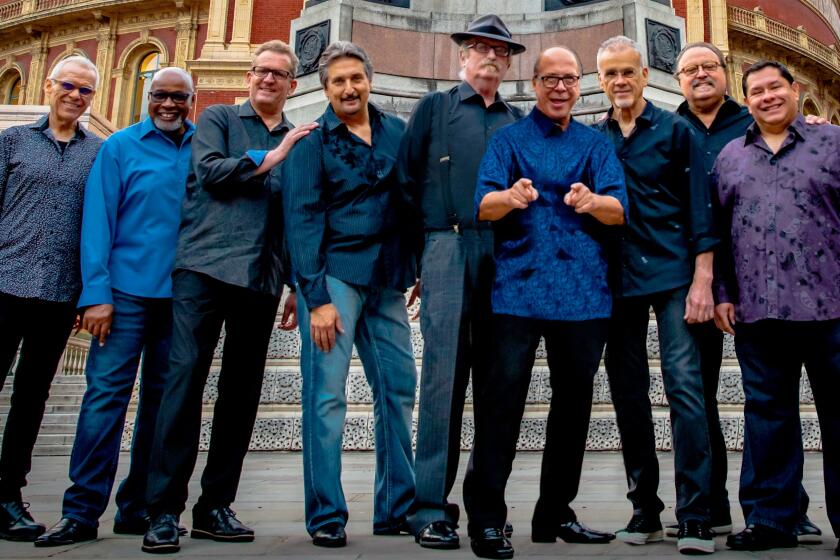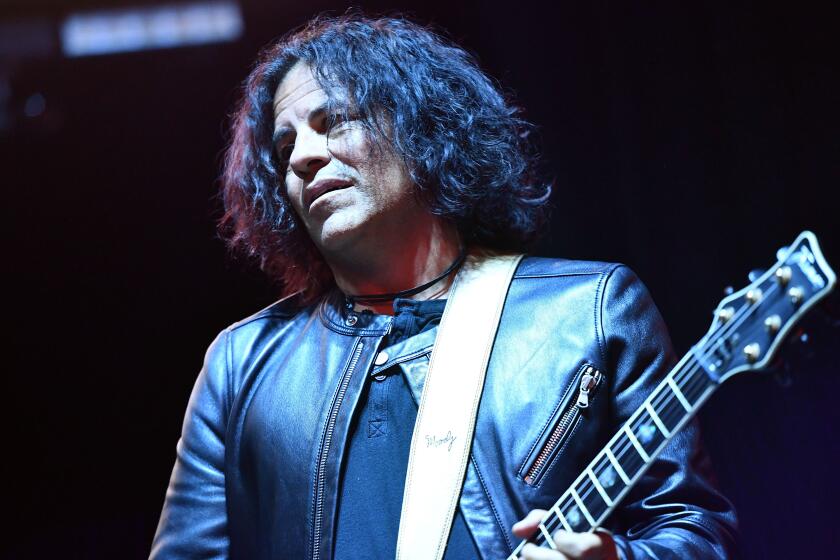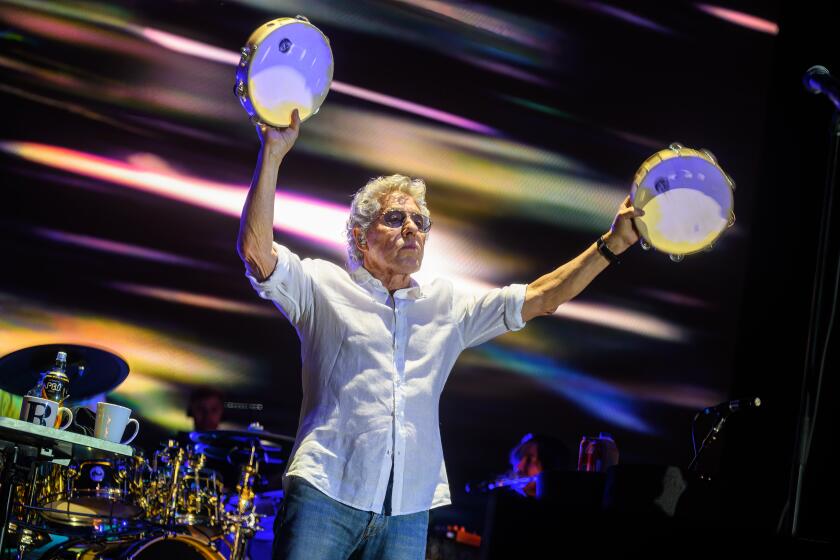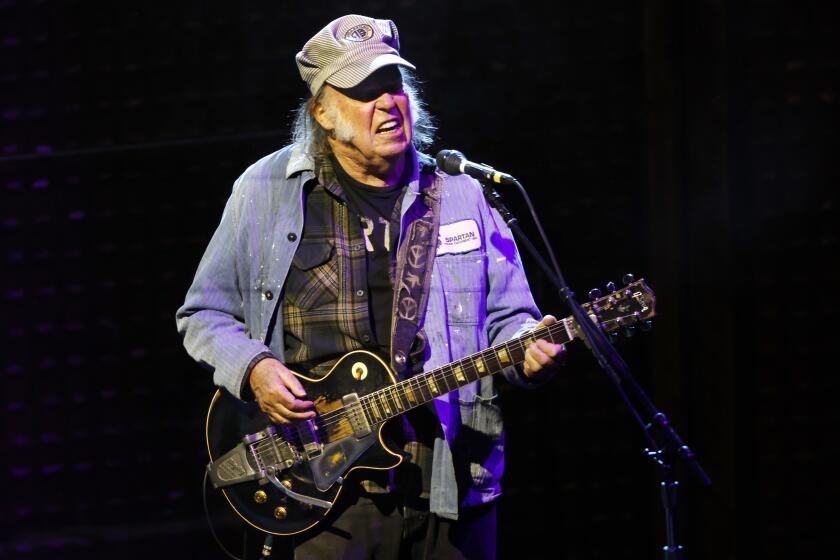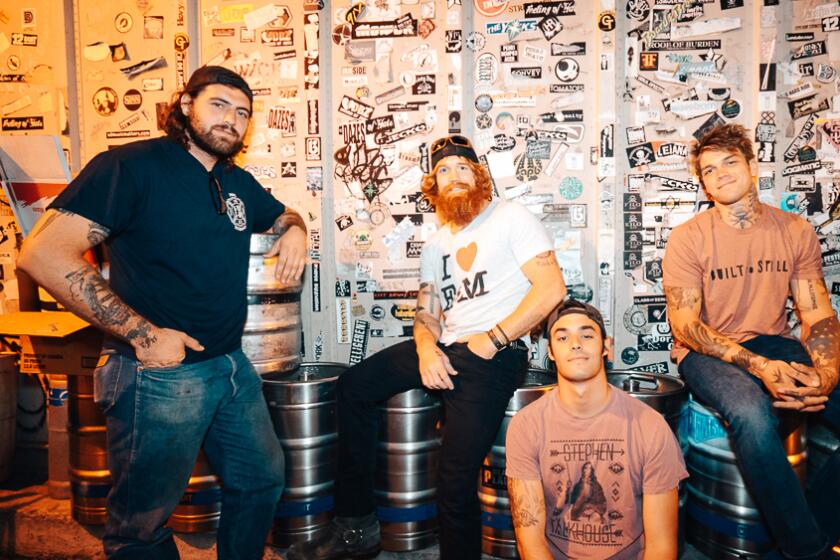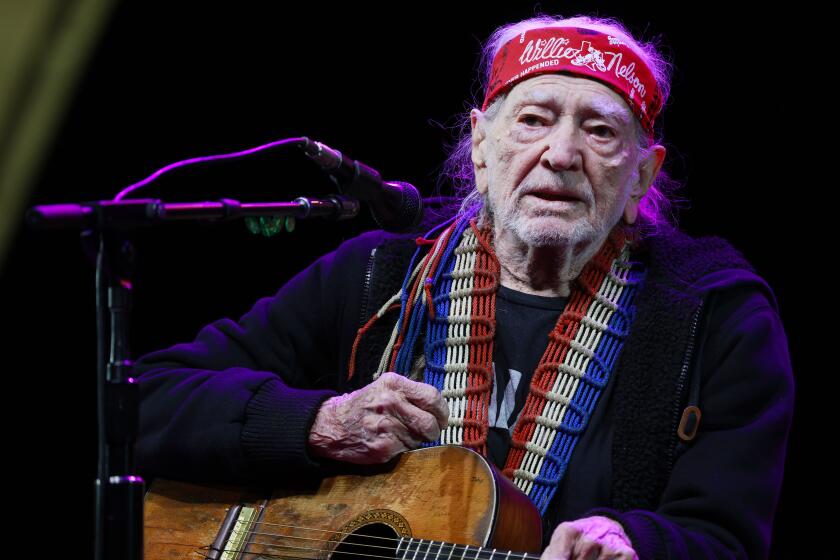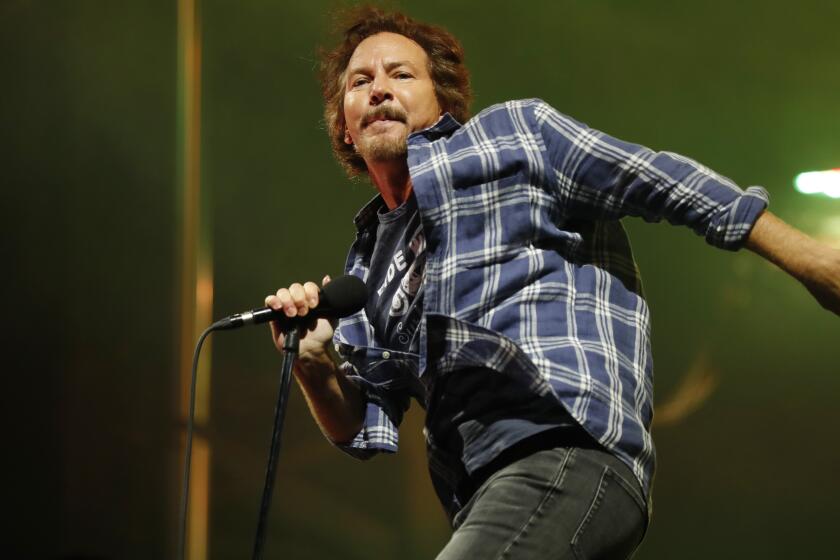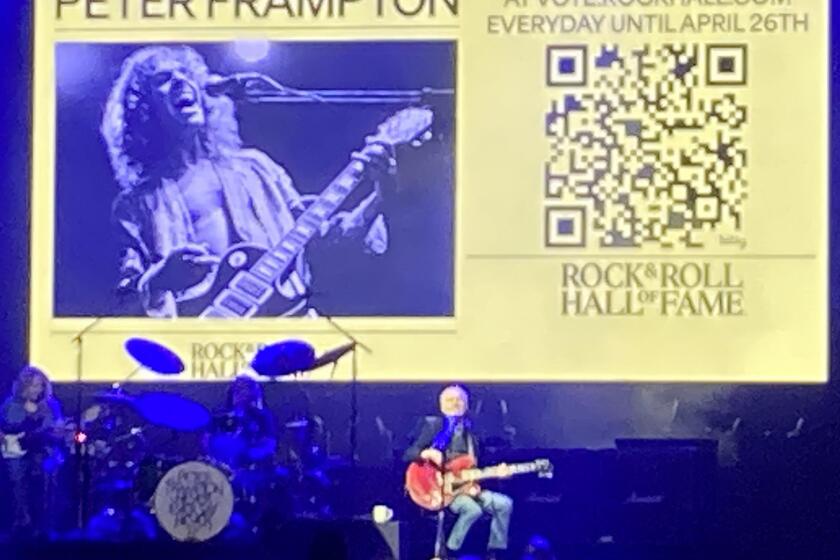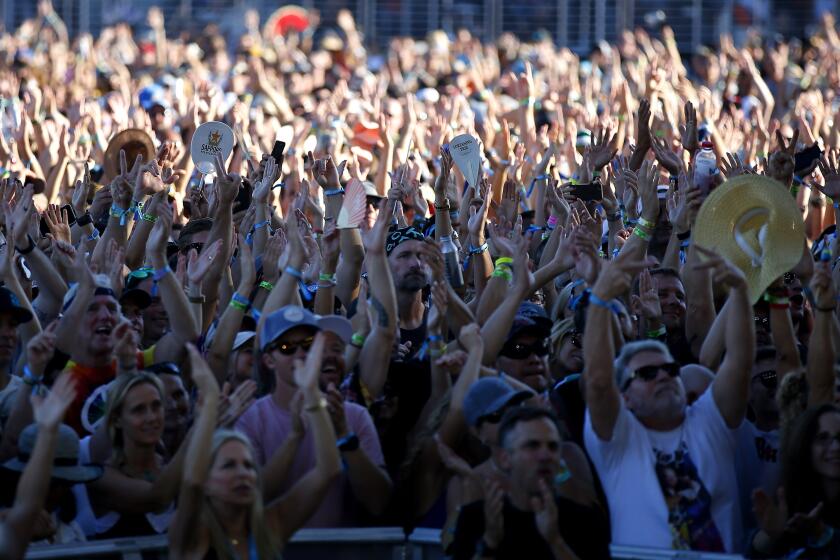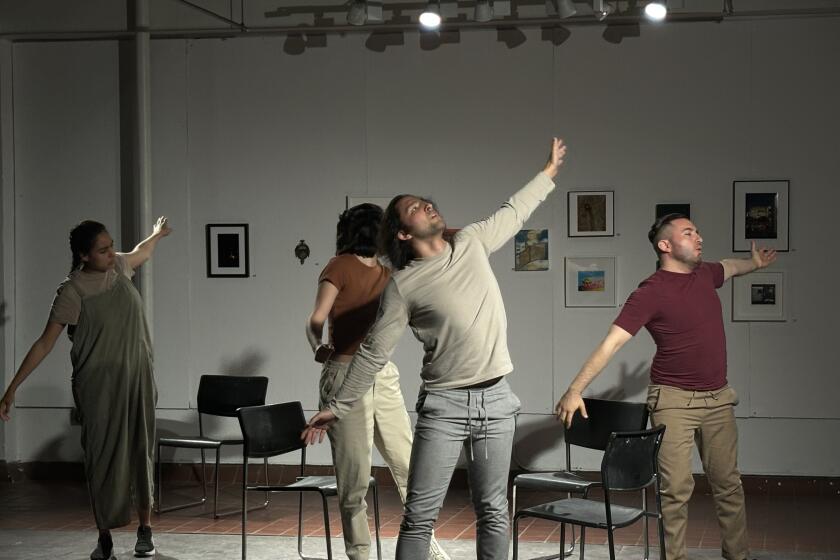Little Feat ‘Waiting for Columbus’ live box-set a deep dive; Jeff Beck & Johnny Depp’s ‘18’ a major misfire
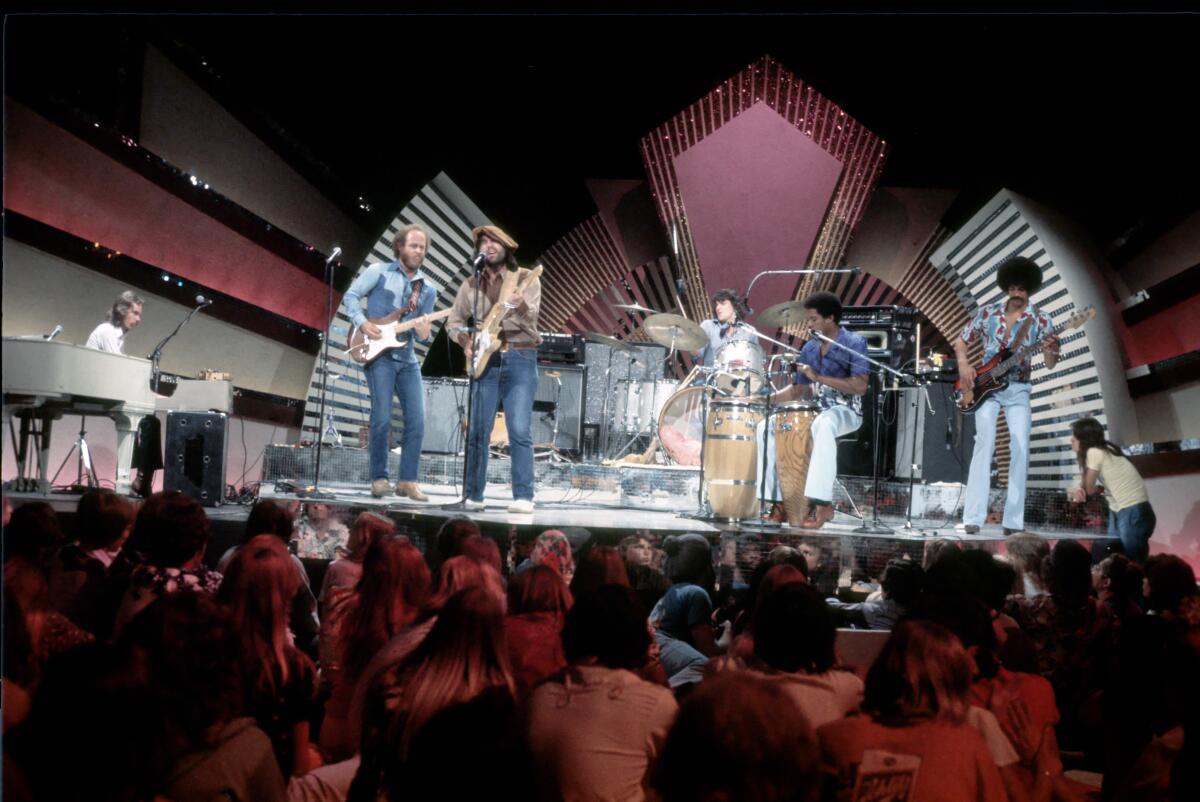
In its prime, the Los Angeles-bred Little Feat made exceptional music but was beset by drug problems and colliding egos. Jeff Beck’s musical partnership with Johnny Depp begs the question: Why?
Little Feat
“Waiting for Columbus” Super Deluxe Edition
(Rhino Records)
Few bands can match Little Feat when it comes to creating first-rate music that both defined and transcended its time — or when it comes to enduring tumult and tragedy.
The fact Little Feat persevered, despite having disbanded twice in its first four years of existence, suggests its members realized their unique musical chemistry was worth the extra effort.
A quartet that soon morphed into a six-man ensemble, the group’s seamless blend of rock, blues, funk, country, soul, boogie, gospel, Latin, jazz and New Orleans-drenched R&B often exceeded the sum of its parts. Superior musicianship and stellar songwriting were showcased on a string of classic Little Feat albums, including 1972’s “Sailin’ Shoes,” 1973’s “Dixie Chicken,” 1974’s “Feats Don’t Fail Me Now” and 1975’s “The Last Record Album.”
Discerning listeners and admiring musicians took note.
The diverse array of artists who have covered Little Feat songs includes Linda Ronstadt (“Willin’,” “Roll ‘Um Easy”), Robert Palmer (“Spanish Moon,” “Trouble,” “Sailin’ Shoes”) Bonnie Raitt (“Takin’ My Time,” “Fool Yourself”), the Grateful Dead’s Bob Weir (“Easy to Slip”), Taj Mahal (“Feats Don’t Fail Me Now”), Nazareth (“Teenage Nervous Breakdown”) The Byrds (“Truck Stop Girl”), Van Halen (“A Apolitical Blues”), Eddie Money (“Rock and Roll Doctor”) and more.
The vibrant legacy this Los Angeles-bred band created in its prime is celebrated anew on the eight-CD, deluxe edition of “Waiting for Columbus.” Recorded at concerts in London and Washington, D.C., it was originally released in 1978 as a double-live album and featured the five-piece Tower of Power brass section on some selections. By the end of that year, Little Feat had imploded, nine years after being launched.
The latest edition of the band — three of its key former members are deceased — is now on a 45th anniversary “Waiting for Columbus” tour. They perform in San Diego next Sunday at Humphreys Concerts by the Bay.
The tour is a celebration of Little Feat’s only million-plus-selling album. For longtime fans, it is also an elegy. Singer-guitarist Lowell George, the band’s mastermind, died of a drug-fueled heart attack in 1979. Drummer Richie Hayward died from cancer-related causes in 2010. Guitarist-singer Paul Barrere died of liver cancer in 2019.
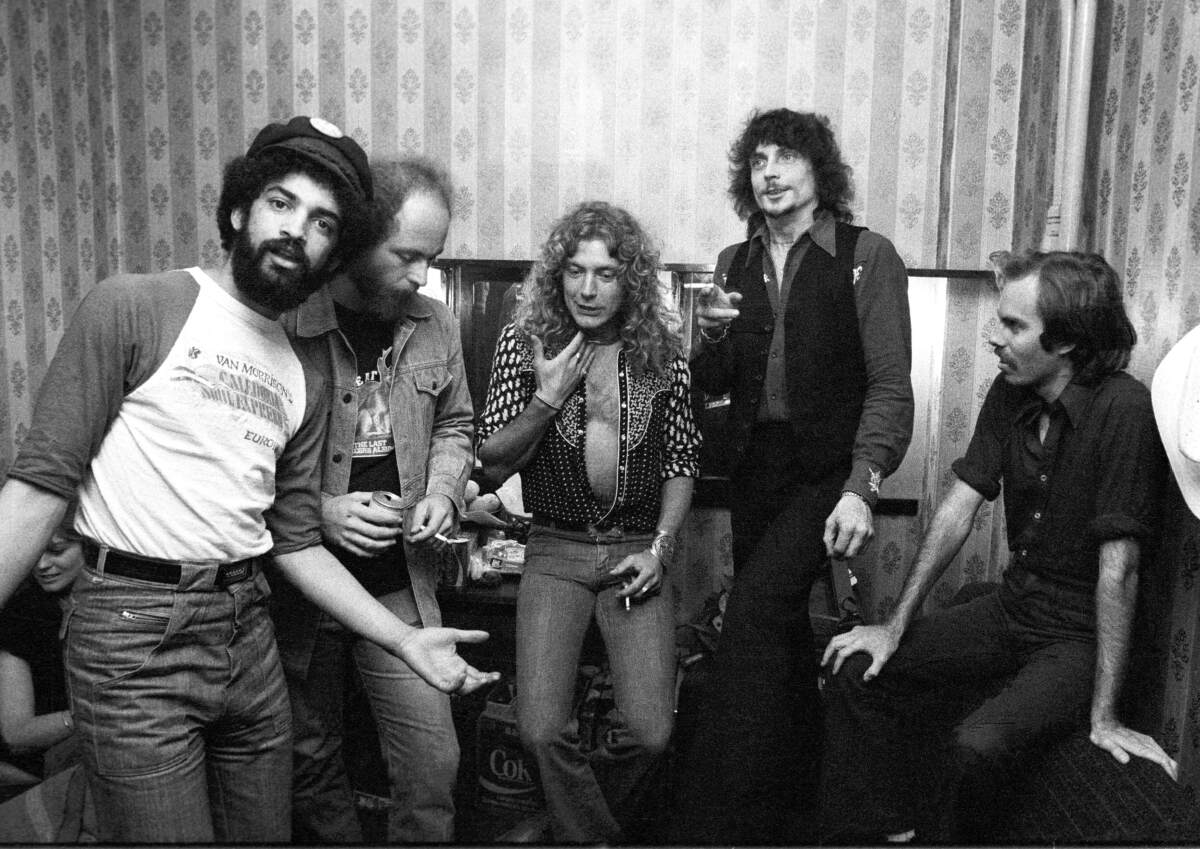
That leaves keyboardist-singer Bill Payne as the sole living original member of Little Feat still in the band. Bassist Kenny Gradney and Fallbrook-based percussionist/vocalist Sam Clayton, who both joined in 1972, are also still on board. (Original bassist Roy Estrada is serving a 25-year prison sentence in Texas.)
Little Feat’s current concert trek finds the band performing all the songs from “Waiting for Columbus” in the same order as on the original album.
It’s a formidable task, although longtime fans Phish lovingly performed all 16 of the original “Columbus’ ” songs as a tribute at one of its 2010 concerts. The high regard in which Phish held the album is amplified by the fact that Little Feat created a jam band template more than 40 years ago that no jam band since has been able to match.
At the time of its release, “Waiting for Columbus” was hailed as one of the great live albums of the 1970s. It was — and wasn’t.
George, who by 1976 had largely lost interest in Little Feat, did not think “Columbus” lived up to its potential. So he re-did nearly all of his vocal and guitar parts in a Los Angeles recording studio, after the completion of the 1977 tour that the album was recorded during.
For the record, Little Feat isn’t the first (or last) band to release a live album with varying amounts of vocal and instrumental parts that were re-recorded in a studio. Other examples range from Crosby, Stills, Nash & Young’s “Four Way Street” and the Grateful Dead’s “Europe ‘72” to Thin Lizzy’s “Alive and Dangerous” and the Eagles’ “Eagles Live.”
What makes “Columbus” so intriguing isn’t the remastered two-CD version of the original album, which was first reissued in 2006 with 10 bonus tracks. Rather, it’s the inclusion of three additional two-CD live sets, all previously unreleased except for a single song, that were recorded on the same 1977 tour and are presented here — free of any studio overdubs — in their entirety.
Their inclusion is all the more welcome since — according to saxophonist and Tower of Power co-founder Emilio Castillo — the original “Columbus” live recordings made at one of the band’s two 1977 London concerts were inferior.
“One of the worst nights of the whole recording process was in London and they wound up using most of that on the (original live) album,” Castillo lamented in a recent Union-Tribune interview.
The brassy Oakland band, now in its 53rd year, performs Thursday at The Shell on a double-bill with the jazzy jam band Lettuce
“There was a big fight backstage (between Lowell George and Richie Hayward) right before they walked on stage. It’s too bad those things happened.”
That makes the expanded, eight-CD “Columbus” all the more welcome for capturing a splintering, feuding band somehow rising above its internal battles and the debilitating drug use that afflicted some of its members. The result is a live album (or, more precisely, several live albums in one package) that exult in the unadulterated joy of making music.
The previously unreleased concerts featured in the “Waiting for Columbus” box set were recorded in Manchester, London and Washington, D.C. The set lists do not differ significantly, which means there are up to four versions of the same songs spread across the four two-CD sets.
But Little Feat never played anything the same way twice, be it the weathered truck-driving ballad “Willin’,” the rollicking “Rock and Roll Doctor” or the moody, loping “Spanish Moon,” which has been sampled by, among others, Wu Tang Clan’s Method Man.
Indeed, it is the subtle — and, sometimes, pronounced — differences between each Little Feat performance that makes “Columbus” so enticing. Ditto the band’s elastic, push-and-pull rhythmic interplay and the way Payne, George and Barrere complement each other as they weave intertwining melodies, trade lead lines and offer an advanced class in the art of impressively intuited collective improvisation.
The Little Feat of 1977 was a consummate jam band whose jams were always tightly focused, rarely self-indulgent. The musicians reveled in finely honed ensemble playing, not showing off, and they listened as intently as they played.
The biggest treat here is the previously unreleased concert recorded at Lisner Auditorium in Washington, D.C. The sinuous grooves that were one of Little Feat’s ace in the holes are more relaxed and nuanced here, allowing the songs to open up in fresh and unexpected ways.
George’s un-doctored vocals are soulful, sly and knowing, usually all at once. He did not need to belt to make an impact, and the fact that — apart from bassist Gradney — each member of the band also sang gave Little Feat rich vocal dimension.
Some numbers, such as the Weather Report-influenced instrumental “Day at the Dog Races,” were usually delivered at a breakneck pace that verged on frantic. The newly released Lisner Auditorium version is performed in a more leisurely manner that allows the music to breathe and welcome new textures to emerge.
Such Little Feat gems as “Skin It Back,” “Fat Man in the Bathtub” and the prophetically titled “Old Folks Boogie” are expertly reshaped by musicians who could turn on a dime and burrow deep into a groove to find new possibilities. They don’t just sound different, they feel different as well.
As a result, the expanded version of “Waiting for Columbus” is a testament to what can happen on a concert stage in real time — and why an imperfect live album that leaves the mistakes intact can be the closest thing to a perfect live album of all.
Did you know?
Singer-guitarist Lowell George and original Little Feat bassist Roy Estrada had previously been members of former San Diegan Frank Zappa’s shape-shifting band, the Mothers of Invention. Depending on the source, Zappa either encouraged George to start his own band or fired him for writing a song (‘Willin’ ”) whose lyrics Zappa regarded as pro-drugs. Either way, Little Feat was born.
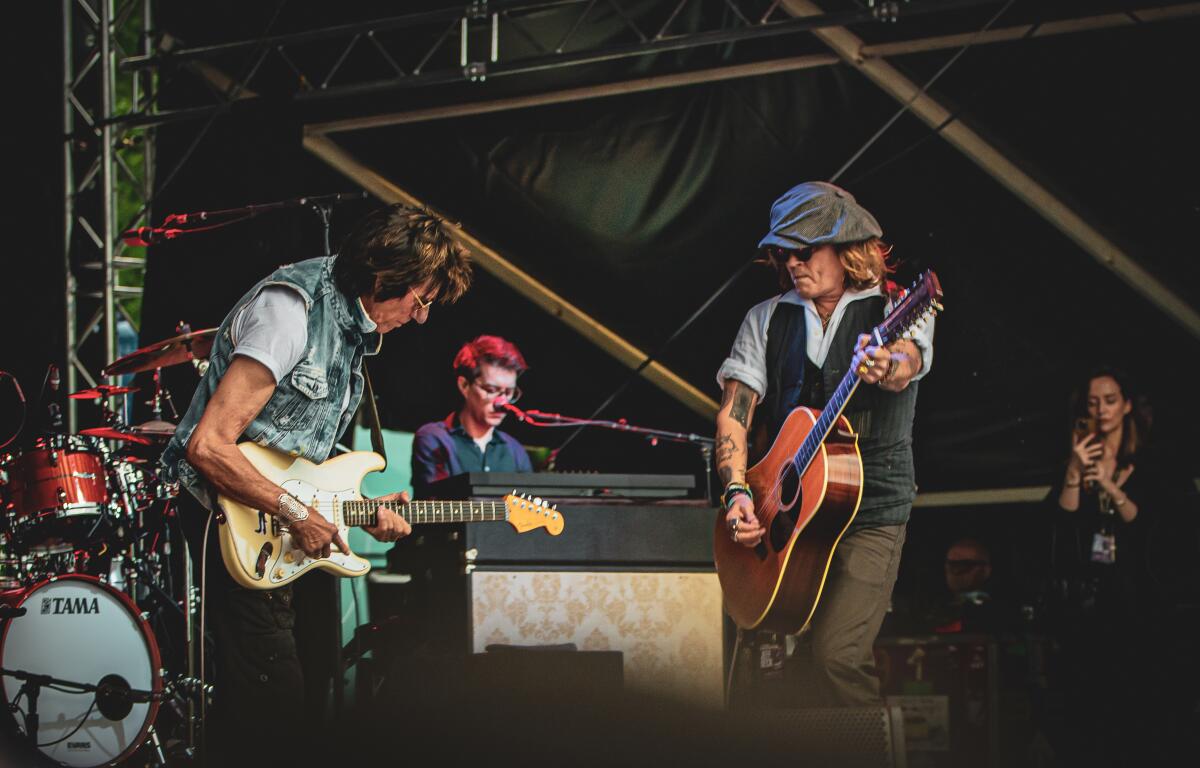
Jeff Beck & Johnny Depp
“18”
Atco Records
Electric guitar master Jeff Beck has deftly accomplished myriad feats of six-string magic over the years, as befits a dazzling musical wizard whose fans have ranged from onetime recording partner John McLaughlin to the young Jimi Hendrix.
Alas, even Beck isn’t capable of making Johnny Depp disappear. Such an accomplishment would immeasurably improve “18,” this unlikely duo’s first (and, one hopes, last) joint album.
Beck, a two-time Rock & Roll Hall of Fame inductee, met three-time Oscar-nominated actor Depp — an avocational guitarist and vocalist — in Japan in 2016. The two began recording what became “18” in 2019.
Given Depp’s marginal musical skills as an at-best average rhythm guitarist and even less able vocalist, it is easy to see why he would be eager to team up with the legendary Beck. What Depp’s allure might be to Beck is difficult to determine, although Beck offered a key nonmusical reason in a recent press release, stating: “Every time we’re together, it’s nonstop laughter.”
Nonstop laughter does not, unfortunately, make for memorable music. The only chuckles “18” might inspire are the kind that accompany head-shaking and eyebrow-raising bewilderment.
Beck, as he has demonstrated since rising to prominence with The Yardbirds in England in the mid-1960s, has a sound and style all his own. His impeccable tone, exquisite phrasing and deeply felt playing are matched by his imagination, exacting command of dynamics and oh-so-nimble touch, whether caressing a note or soaring into the stratosphere.
Depp — who dominated headlines and the internet earlier this year during his contentious libel case against his former wife, Amber Heard — has none of Beck’s attributes.
His rhythm guitar playing is passable at best, although not especially audible here (which may be a good thing). His vocals, which are pompously recited almost as often as they are sung, are negligible.
It’s a mystery, then, why anyone thought it was a sound idea to have Depp team with Beck to perform almost unlistenable versions of The Everly Brothers’ “Let It Be Me” and Janis Ian’s “Stars.”
Depp’s falsetto on his and Beck’s rendition of Smokey Robinson & The Miracles’ “Ooo Baby Baby” isn’t awful, just bland and sterile, which may be worse. But it’s still better than his mangling of Marvin Gaye’s epic “What’s Going On,” which ignites only when Beck’s shimmering guitar work “sings” the lead vocal parts.
Things improve dramatically on Beck’s luminous instrumental versions of Irish uilleann pipes virtuoso Davy Spillane’s “Midnight Walker” and two Beach Boys’ gems, “Caroline, No” and “Don’t Cry (Put Your Head On My Shoulder).”
The album’s nadir comes on one of the two songs written by Depp, “Sad Mother (Expletive) Parade,” on which his affected, electronically altered vocals at times sound like a very drunk Lou Reed attempting to rap. The caustic lyrics are intoned with such hipster-ish pretention that maybe this is what Beck meant when he referred to “nonstop laughter.”
Less funny is the Aug. 5 disclosure that the lyrics to “Sad Mother (Expletive) Parade” — which is credited to Depp and Beck — contain lines that appear to have been taken, almost word for word, from “Hobo Ben,” a 1964 poem by Slim Wilson that was published in a 1974 book. Wilson then recorded “Hobo Ben” as a song in 1976.
In response to press inquiries, a representative for Beck and Depp released a statement regarding the apparent similarities: “We are reviewing the inquiry relating to the song ‘Sad Mother (Expletive) Parade’ on the ‘18’ album by Jeff Beck and Johnny Depp. If appropriate, additional copyright credits will be added to all forms of the album.”
With or without any plagiarism, a cynic might ponder if Depp paid (that is, underwrote) the production costs to make “18” as a way to get co-billing on an album with Beck. Even if this largely dispensable album quickly disappears, which seems likely, Beck may end up paying for it — at least in terms of his musical credibility — for some time to come.
Get U-T Arts & Culture on Thursdays
A San Diego insider’s look at what talented artists are bringing to the stage, screen, galleries and more.
You may occasionally receive promotional content from the San Diego Union-Tribune.
